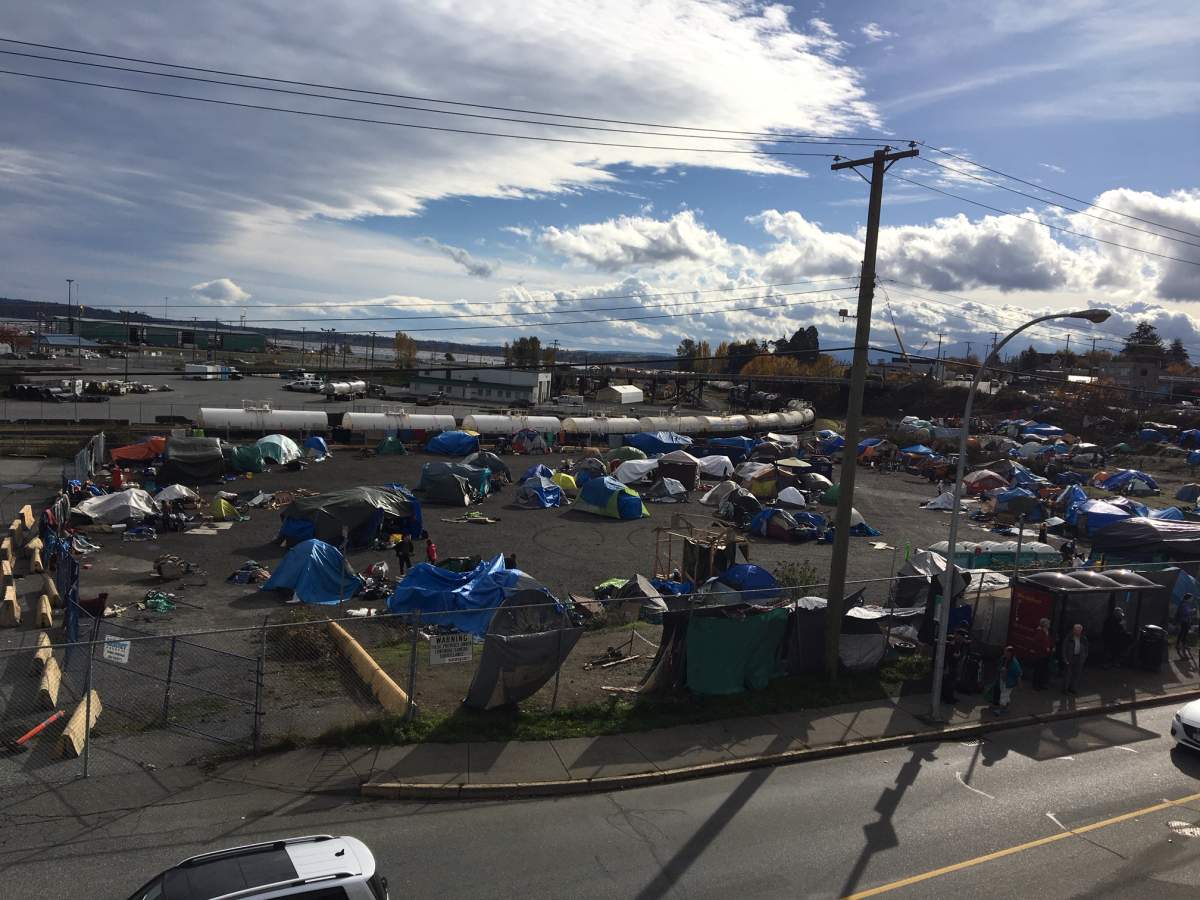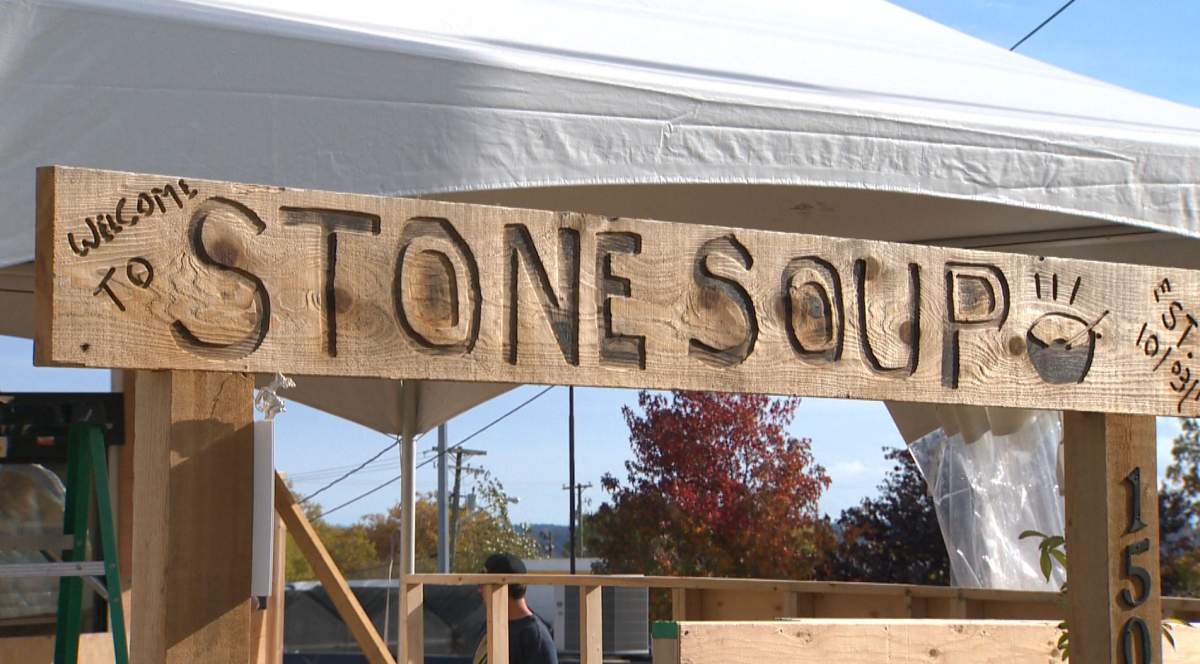A Nanaimo, BC., couple has brought the stone soup fable to life, running a soup kitchen entirely powered by donations in their small backyard, seven nights a week.

The fable is a little different from culture to culture, but at its heart, it’s about sharing – giving whatever you can to make a difference.
“It’s not what we want. It’s what can you give? We don’t expect a million dollars. If you can afford five pounds of potato, you know what? That’s a pot of soup,” said Tanya Hiltz.
She’s president of the local Wisteria Community Association and those who know her say she’s always helping those in need in Nanaimo. Stone Soup is just one of the initiatives she runs with her husband Doug.
Every night, they have two kinds of soup. Everything is donated.
That includes a new structure: Saywell Contracting donated the time and materials to build a covered kitchen spanning the couple’s backyard.
The need in the small city of Nanaimo, with about 90,000 people, is desperate.
READ MORE: Vancouver Island drug sites see 100K visits, Nanaimo councillor calls for more
In the past two years, 80 people have died of drug overdoses.
In May, a tent city sprang up in a large lot by the water’s edge and soon became the biggest in British Columbia, housing about 300 people.
For six months, it caused tension in the community. City officials went to the B.C. Supreme Court to have it shut down, and it was shuttered Nov. 30.
READ MORE: Judge gives residents of Nanaimo tent city 3 weeks to clear out

Get daily National news
Not far away at Stone Soup, Hiltz says they feed between 120 and 200 people every single night.
“We’re all human. We all have a right to live. What their lifestyle is, is not my business. It’s not yours. Just put out a reaching hand. Maybe that hand is what helps them get clean and sober,” said Hiltz.
Many of the clients struggle with addictions, poverty and homelessness.
Jose Ferman says he comes almost every night. He was living on the streets until just a few months ago, and says now he’s doing “better than before, really.”
“They help our community … I appreciate it, everything,” he says of the soup kitchen. He tries to give back by helping out there when he can.
“You don’t mind if I call you ‘Mom’?” he remembers asking Hiltz in an early encounter months ago. “’Go ahead, son.’ And I got a new mom.”
She’s a mother figure to adults struggling, as well as children.
Lisa Thow has brought her kids to eat at Stone Soup. About 10 years ago, their father almost died of a drug overdose. She says the traumatic experience has stayed with her daughter and son, now 14 and 12.
“They have severe PTSD, anxiety, depression, my oldest actually is diagnosed with bipolar,” Thow said.
WATCH: Vancouver Island University launches program for children caught up in the opioid crisis

And she’s grateful to Hiltz for more than just a hot meal.
“She’s been very resourceful for my daughter and my son, like finding programs for them, community stuff, she got me in contact with people that would help my kids through the trauma they went through with their dad,” Thow said.
“I guess it’s called giving back to your community,” Hiltz said. “I grew up on the street, so I know how hard it can be.”
While she doesn’t want to get into the details of her past, she said trauma in her childhood led her onto the street. That’s why she’s particularly worried about today’s children, caught up in the opioid crisis that has ravaged British Columbia more than any other province.
“Children are all affected because everyone that comes here – this is the south end of Nanaimo. So they’re probably facing a family member that’s using either drugs or alcohol. My biggest thing is, we try not to judge, and welcome them,” Hiltz said.
WATCH: The tragic impact of Canada’s opioid crisis on children

She says some children do end up forgotten or lost, and she often hears from parents despondent over the loss of a child to the foster system.
“They’re greatly affected,” she says of children connected to the opioid crisis.
“They may not show it now, but wait for a year, two years down the road, they’re going to start acting up.”
Hiltz says her goal is to keep teaching children better ways of life, to hopefully stop the opioid epidemic.
And in her backyard, it all starts with unlimited bowls of soup.
“You feed the soul, you’re feeding the mind.”




Comments
Want to discuss? Please read our Commenting Policy first.